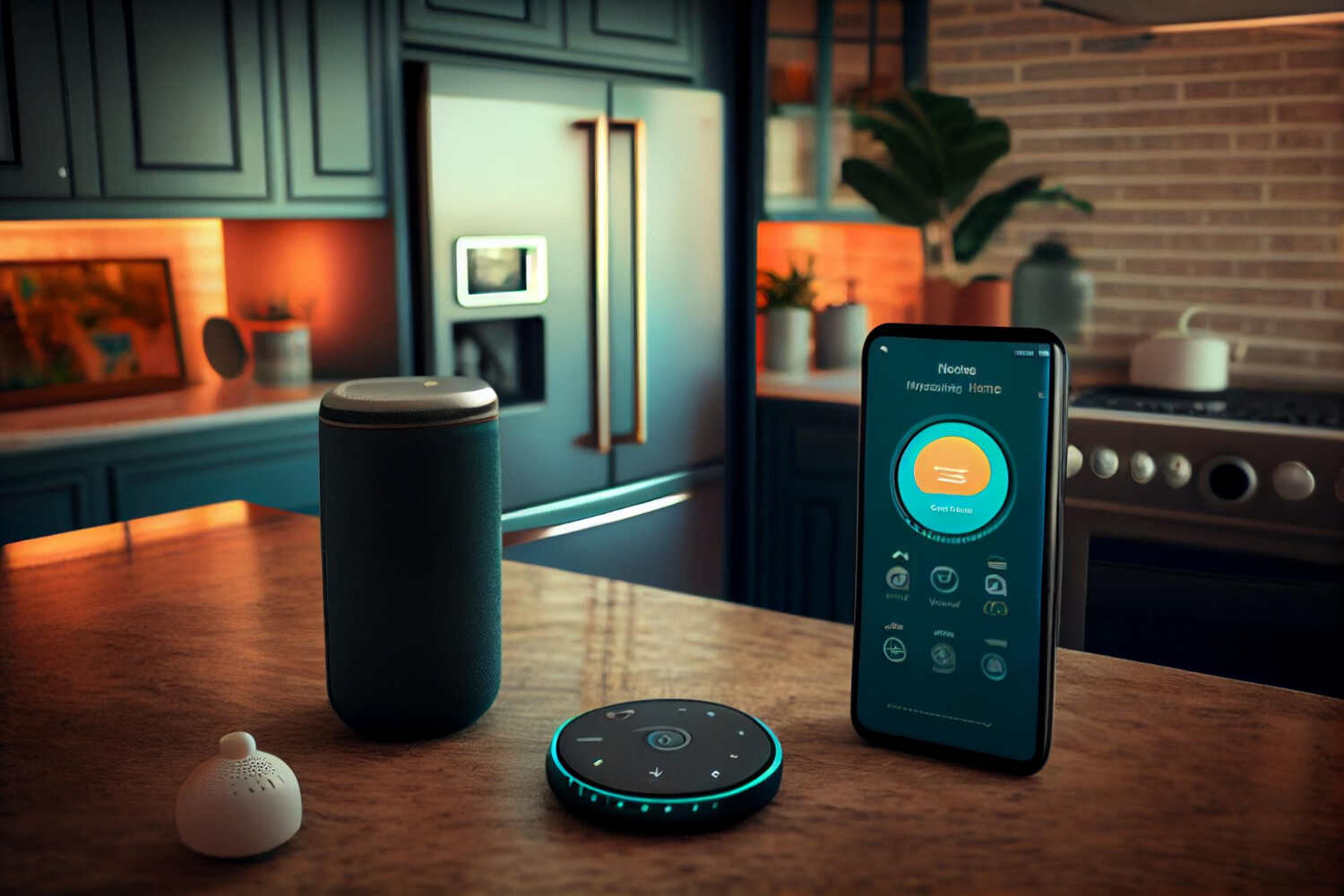Once reserved for humans, the meaning of the word “smart” has evolved. People are increasingly using the term “smart” to describe computers rather than people. Smartphones, smart watches, smart air conditioners, and the list goes on and on. These days, even our houses have smart features. It’s mind-boggling to consider these houses as “smart homes” in the future. Home automation systems owe a debt of gratitude to AI and Internet of Things technologies.
What is smart home technology?
A smart home, also known as home automation, is a system that allows you to operate and monitor your house’s systems and appliances from anywhere in the world via a network of interlinked devices. Now a lot of individuals have devices like HVAC, smart home lighting, security cameras, alarms and many more networked via home automation systems to make their lives better in many ways: more pleasant, safer, simpler, and more energy efficient.
Home automation advancements
Over the years, home automation has progressed from simple automation to sophisticated, interconnected smart home systems. Following automatic utilities like dishwashers and air conditioners were common appliances like washing machines and refrigerators. More intricate systems are now possible, thanks to the rise of affordable digital technology. The internet has also made online systems easier to manage.
The technology behind home automation
The Internet of Things (IoT) is now the backbone of home automation systems. With the rise of the Internet of Things (IoT), basic homes are being transformed into “smart homes.” This technology allows homeowners to remotely operate their house’s systems, including appliances, lighting, cameras, locks, and thermostats. The Internet of Things (IoT) opens the way for several types of automation, which in turn greatly reduces utility costs and increases energy efficiency.
Home Automation Devices’ Impact on Daily Routines and Activities
- Automate daily tasks.
- Home automation allows for more flexibility with less human involvement via the use of networked smart devices to automate tasks.
- You can monitor your health, turn on and off lights and HVAC, set up security features, operate household appliances, listen to music, and more.
- You can automate your daily tasks with the help of smart home technology, which includes thermostats, lights, appliances, security systems, music players, and irrigation systems.
- Enhanced security and safety
- Home automation systems greatly improve security and safety by using the latest innovations to identify potential dangers, send out alerts, and manage any related actions.
- You can remotely monitor your house, get notifications when motion is detected, and add an extra layer of protection with smart home cameras, smart home locks, and alarm systems.
- Intruder cameras can monitor guests and capture footage of theft or trespassing, whereas dangerous gas, smoke, and water leak alarms can identify and alert homeowners more quickly.
- Remote control and monitoring
- When it comes to home security, automation is changing the game. Advanced devices like smart cameras and smart door locks for homes can detect, inform, and supervise any dangers in and around the house.
- Individuals can keep tabs on their properties from any location thanks to these systems, which provide proactive control and real-time monitoring via smart phones or mobile devices.
- Smart home locks control access without the need for a physical key, while motion detection alerts let cameras warn devices of any suspicious activity. Notifications and access records document the timing and identities of visitors.
- Voice Control Integration
- Voice control is an amazing invention that eliminates the need for devices and physical buttons to operate a wide range of household appliances.
- Voice assistants such as Siri, Google Home, and Amazon Alexa have made the process of setting up and managing smart home devices easier; hence, people have started using them more.
- Voice control integration is only about home automation, but it has helped millions of people with disabilities, movement challenges or old age.
- Energy management and savings
- When it comes to managing energy usage, smart home automation is making a huge splash.
- Smart thermostats, self-controlled lights, smart outlets, and power strips are key components for energy savings in home automation.
- These smart devices monitor temperature and user activity in real time, allowing homeowners to optimise consumption and reduce costs.
- Integration of various systems maximises energy efficiency, resulting in significant reductions in monthly electricity bills while also promoting sustainability.
Popular home automation products
Smart home devices such as security cameras, smart locks, and video doorbells, controlled by smartphone apps or voice commands, are available from numerous brands. Popular smart home devices include voice-controlled smart speakers such as Amazon Echo and Google Nest, as well as smart thermostats and air conditioners, smart light bulbs, smart home lighting kits from brands like Philips Hue, and many more. These days’ smart devices are endless.
The future of smart homes
- The future of smart homes will see enhanced interoperability, safety measures, health monitoring, VR and augmented reality, robots, and autonomous appliances due to artificial intelligence and machine learning.
- By integrating health monitoring, wearable gadgets, and other technology, sustainable living spaces will become a reality, but it will take its own course.
- As the cost of automation decreases, these machines will be able to control an increasing number of home appliances, and shortly, smart homes will incorporate virtual and augmented reality systems that provide real-time information on common household items.
Conclusion
In summary, home automation devices have a significant impact on daily routines and activities. Home automation devices automate daily tasks, enhance security and safety, allow for remote control and monitoring, offer voice control integration, and help with energy management and savings. They provide flexibility, convenience, and cost savings while improving the overall quality of daily routines and activities. As there is a saying, “Let the machines do the work, so humans can think.”






